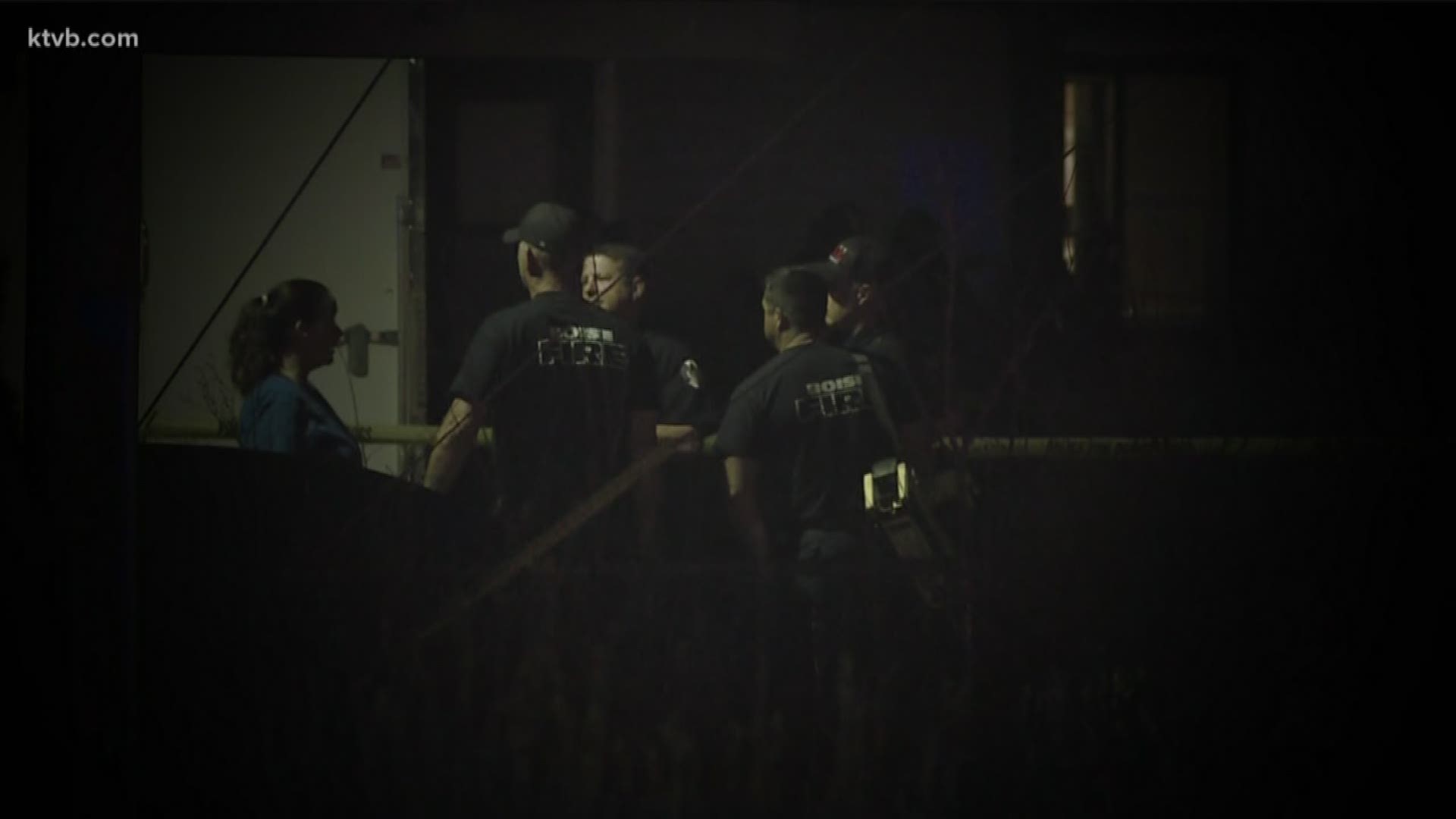BOISE - Being a first responder, such as a firefighter, is tough job for many reasons.
They put their lives on the line on a daily basis and put others before themselves in dangerous situations.
It’s understandable that some of the gruesome and disturbing calls they respond to can have lasting effects. Many can, and do, develop post-traumatic stress disorder. Under Idaho law, workers' compensation does not recognize PTSD as a work-related injury.
In dispatch audio from Saturday's horrific mass stabbing, which KTVB obtained, you can hear the first responders shaken from the scene they have just arrived at.
"Usually, when its children it seems to affect us a lot more for some reason. And so, to have so many children hurt on this call and our firefighters came in, and police officers, and Ada County EMS did the best they could but it does it affects you emotionally," said Boise Fire Chief Dennis Doan.
Chief Doan said for many first responders, incredibly sad scenes like last Saturday's can have an accumulative effect, meaning it builds on top of other difficult calls.
"Recently I was talking to one of our firefighters, one of the cars that went over Lucky Peak and they had to dive in and remove those children from the car. Going on structure fires where I wasn't able to save a young child that died in that call, those things are difficult and sometimes we need some help after we have gone on calls like that," Chief Doan said.
And sadly, first responders can reach their breaking point.
"I will say that suicide rates amongst firefighters and police officers is very, very high. I do know that more firefighters killed themselves then died in the line of duty next year," says Chief Doan.
Chief Doan says its time PTSD and other mental health issues are covered by insurance so these men and women who put their lives on the line don't resort to such lengths.
"Under Idaho law, workers' comp denies a mental injury unless there is a physical injury that goes with it," says Chief Doan.
The Idaho Industrial Commission is the agency in charge of workers' compensation.
They declined for an interview but sent us the following statement which details how psychological injuries are difficult to prove.
"Under IC 72-451, so-called 'physical-mental' and 'mental-physical' claims are potentially compensable. Only "mental-mental" claims are not compensable. The requirements for obtaining coverage for psychological claims are somewhat more onerous than for other claims, possibly because psychological injuries are more subjective than the typical work related injury to a knee, low back, etc.
"For all psychological claims the claimant has the burden to prove the following: 1) that the work accident is the predominant cause, as compared to all causes combined, of the psych condition; 2) that the psych condition is a recognized psych condition under the current edition of the Diagnostic and Statistical Manual of Mental Disorders; 3) that the psych condition is not caused by the usual incidents of the employment relationship, such as being terminated, for example; 4) that the claimant prove the causal relationship between the accident and the psych condition by clear and convincing evidence."
It will take an act by the Idaho Legislature to change this law.
Recently in Washington state, Gov. Jay Inslee signed a law where the Department of Labor and Industries can now pay worker's compensation claims for first responders who suffer PTSD from their work experiences.

